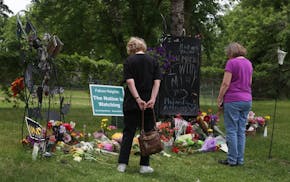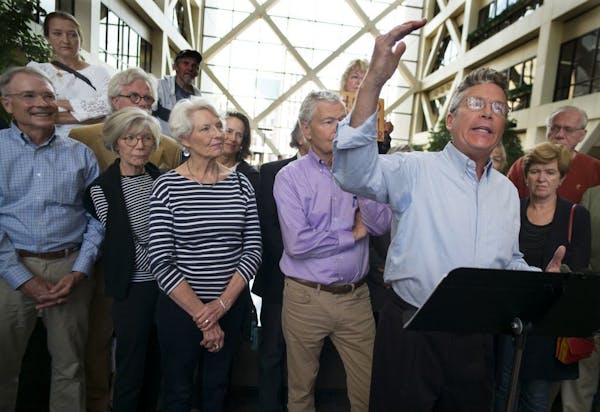The Hennepin County Board on Tuesday became the first public body to kick in additional funds — in this case, $8 million — to support the cash-starved Southwest light-rail line.
The infusion was needed after costs soared on the controversial transit project, which will link downtown Minneapolis to Eden Prairie.
Hennepin County's stepped-up share will come from two sources — $5 million from its Environmental Response Fund, money used to clean up contaminated development sites, and from its Community Works redevelopment program.
The action comes after the Southwest project's price tag soared by $341 million to $2 billion, due in part to the discovery of contaminated soil along the 16-mile line.
A Metropolitan Council advisory committee last week recommended $250 million in cuts to the project, lowering its total cost to $1.74 billion. That still falls $90 million short of the original goal, to pare the overall cost to $1.65 billion.
Several of the government entities along the line — including Eden Prairie, Minnetonka, Hopkins, St. Louis Park and Hennepin County — decided last week to contribute more money to shore up the project's bottom line. They're expected to act on the increased funding in coming weeks, although the budget for the project is still about $7 million short. That means other sources of funding need to be identified, or more cuts made.
The Met Council will vote on the revised budget Wednesday.
Because of the changes to the project, the council will require that all of the cities along the route again go through the municipal consent process, according to Mark Fuhrmann, deputy director of Metro Transit. The first round of this process, which involves the public commenting on the plan, ended last August, when Minneapolis voted to approve the project.
Fuhrmann said the second round of municipal consent likely would take 75 days, but that this would not delay Southwest's projected 2020 opening.
In addition to the $8 million appropriated Wednesday, the Hennepin County Regional Rail Authority will donate land worth $30 million along the rail corridor, which stretches from Minneapolis to the Shady Oak Station in Minnetonka. The land donation will attract an additional $30 million in matching funds from the Federal Transit Administration.
"Eight weeks ago, things were looking pretty grim for this project," said Hennepin County Commissioner Peter McLaughlin, a key broker in the project's retooled budget. "We have to keep our eyes on the prize here."
The appropriation from the county's Environmental Response Fund (ERF) was controversial for some. Martha Faust, executive director of Minnesota Brownfields, a Twin Cities-based nonprofit group that promotes the cleanup of environmentally contaminated land, worries that the annual appropriation could imperil smaller redevelopment projects that need cleanup funds.
Since it was established in 2001, the ERF has funded 328 projects totaling more than $46 million. It has a $9 million budget, of which $7 million is already committed to various projects, not including Southwest. The fund is replenished with money from a mortgage registry and deed tax.
The Southwest appropriation will total $1.25 million per year over four years, from 2016 through 2019. Commissioner Linda Higgins noted, "We are not taking all of the ERF, we are taking some of it."
Curt Gunsbury, a Minneapolis developer, has used ERF funds to clean up contaminated land before building the Solhaus apartments near the University of Minnesota. "It's a great program," he said. "Nearly every redevelopment in the city makes use of this money." Gunsbury said he hopes that will continue to be the case.
Janet Moore • 612-673-7752 @MooreStrib

Jury selected for Feeding Our Future trial after unusually long process due to publicity of massive fraud case
Man gets more than 21 years for part in fatal crash during rolling shootout in downtown Minneapolis

Former MnDOT official approved as Minneapolis public works director

